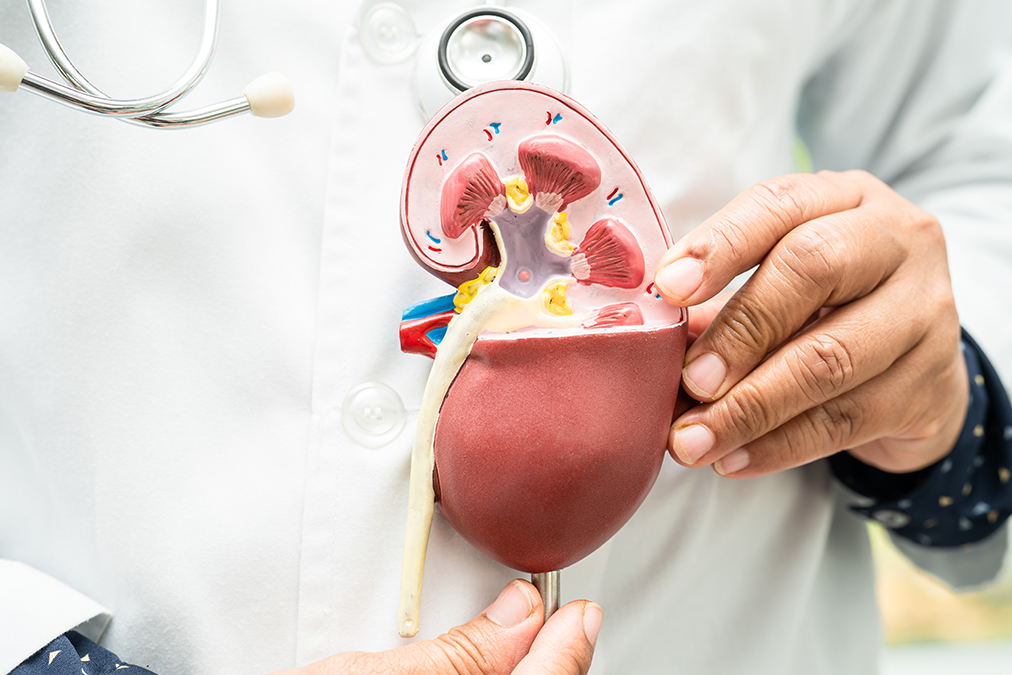 Some places around the world have a 20% occurrence of chronic kidney disease (CKD), which is way above average among the general population.
Some places around the world have a 20% occurrence of chronic kidney disease (CKD), which is way above average among the general population.
A new study in Environmental Science & Technology Letters has just revealed that a chemical used all around the world is responsible for CKD.
In Sri Lanka, with its extensive rice paddies, a public health crisis has emerged over the past two decades, leaving medical professionals puzzled.
Chronic Kidney Disease of uncertain origin or etiology (CKDu) has been increasingly prevalent among farming communities. It has affected up to 20% of the adult population, and early signs of kidney damage have appeared in 9% of children aged 5–11.
Conducted by a team of researchers from Duke University and the University of Ruhuna in Sri Lanka, the new study explored the hypothesis that contamination of drinking water with glyphosate, when combined with water hardness and trace elements like fluoride, could contribute to the high prevalence of CKDu.
The study involved sampling water from over 200 wells across four regions in Sri Lanka, including areas both endemic and nonendemic for CKDu. Using advanced scientific methods, the researchers tested for glyphosate, fluoride, hardness, and other trace elements in the water.
The findings were striking:
-
1. They detected glyphosate in 44% of wells in areas with CKDu, compared to just 8% in non-CKDu areas.
2. They found fluoride in 99% of wells in areas with CKDu, while just 88% of wells in non-CKDu areas contained it.
3. There was a positive association between the presence of elevated levels of glyphosate, hardness, and the trace elements fluoride and vanadium in wells and the prevalence of CKDu.
These results are hugely concerning. Researchers used to believe that glyphosate breaks down quickly in the environment, but this study shows that it forms complexes with metal ions in hard water, such as magnesium and calcium, making it more persistent.
Some research suggests these complexes can survive up to seven years in water and 22 years in soil, making it a serious long-term health hazard.
The study’s implications extend beyond Sri Lanka, as glyphosate is the active compound in Roundup, the most widely used herbicide globally. Its persistence in the environment and potential health impacts, especially in hard water regions, warrant serious attention from regulatory organizations.

 Overcoming IBD
Overcoming IBD Multiple Sclerosis
Multiple Sclerosis Banishing Bronchitis
Banishing Bronchitis Gum Disease Gone
Gum Disease Gone Overcoming Onychomycosis
Overcoming Onychomycosis Neuropathy No More
Neuropathy No More The Prostate Protocol
The Prostate Protocol Brain Booster
Brain Booster
 Ironbound
Ironbound
 Solution for Shingles
Solution for Shingles
 The Bone Density Solution
The Bone Density Solution
 The Ultimate Healing Protocol
The Ultimate Healing Protocol
 The Parkinson's Protocol
The Parkinson's Protocol
 The Chronic Kidney Disease Solution
The Chronic Kidney Disease Solution
 Overthrowing Anxiety
Overthrowing Anxiety The Fatty Liver Solution
The Fatty Liver Solution The Hypothyroidism Solution
The Hypothyroidism Solution
 The End of Gout
The End of Gout The Blood Pressure Program
The Blood Pressure Program
 The Oxigized Cholesterol Strategy
The Oxigized Cholesterol Strategy
 Stop Snoring And Sleep Apnea Program
Stop Snoring And Sleep Apnea Program
 The Arthritis Strategy
The Arthritis Strategy The Vertigo & Dizziness Program
The Vertigo & Dizziness Program The 3-Step Diabetes Strategy
The 3-Step Diabetes Strategy Hemorrhoids Healing Protocol
Hemorrhoids Healing Protocol The Erectile Dysfunction Master
The Erectile Dysfunction Master Weight Loss Breeze
Weight Loss Breeze The IBS Program
The IBS Program The Insomnia Program
The Insomnia Program The Migraine and Headache Program
The Migraine and Headache Program The Neck Pain Solution
The Neck Pain Solution The Menopause Solution
The Menopause Solution The Ejaculation Master
The Ejaculation Master The TMJ Solution
The TMJ Solution The Acid Reflux Solution
The Acid Reflux Solution The Fibromyalgia Solution
The Fibromyalgia Solution The Psoriasis Strategy
The Psoriasis Strategy